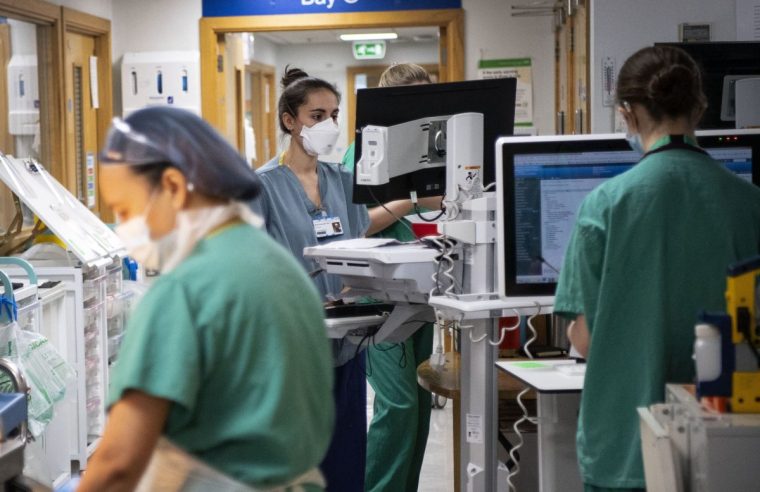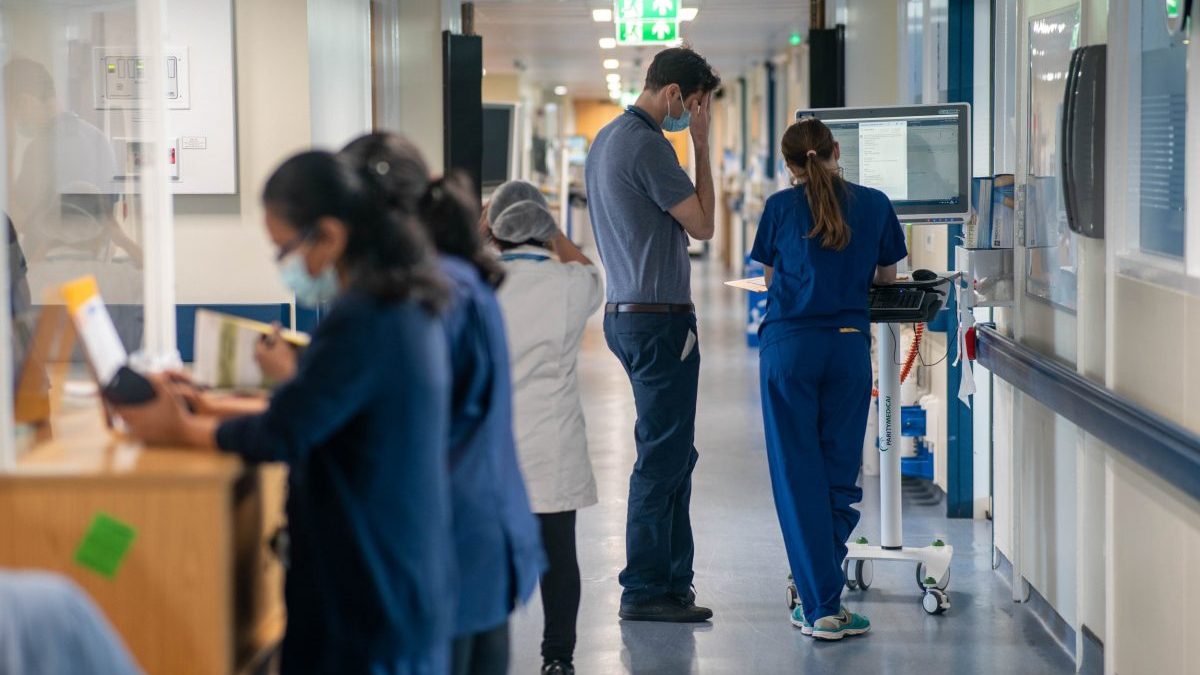Diabetes services for children, virtual wards, end-of-life palliative care and rehab centres are among vital services under threat
NHS trusts are being forced into “thinking the unthinkable” and cutting thousands of frontline clinical jobs as well as axing patient services to balance the books, health leaders have warned.
Diabetes services for children, virtual wards and rehab centres are among vital services under threat in a desperate attempt by NHS leaders to balance their books.
A survey of trust leaders in England by NHS Providers found clinical jobs have already been dropped or are earmarked for cuts, while services such as virtual wards, diabetes clinics, rehabilitation centres, talking therapies and stop-smoking services are at risk or are being scaled back. One NHS trust leader said he had already made 600 out of 1,500 planned redundancies already.
“All those 600 jobs were clinical roles,” the trust’s chief executive said. “We have removed our reliance on using bank and agency – health care support workers, nurses and doctors. Whilst a small number have been offered substantive roles, we do not have permanent jobs for all.
“We’re now working through our divisions identifying the clinical and non-clinical jobs that we’re confident we can remove safely. We’re not going to go below safe staffing levels.”
‘This will cost lives’
Several trusts said they were aiming for reductions of 500 or more jobs. RCN general secretary and chief executive Professor Nicola Ranger warned cutting nurses jobs will costs lives.
She said: “This is NHS leaders themselves coming clean about the perilous state of the NHS. With just weeks until the biggest government spending review in years, this cannot go ignored.
“Cutting nurse jobs costs lives and Wes Streeting will need to decide if this is acceptable on his watch. Reducing clinical jobs and patient services is different from any argument on NHS waste and efficiency. Patient needs go unmet, hospitals become overcrowded and waiting lists grow.”
Another trust is cutting end-of-life and palliative care beds in the community, restricting stop-smoking services and working to reduce referrals to hospital.
Streeting has been a big advocate of virtual wards whose expansion in recent years has been repeatedly declared as one of the most significant reforms to shift care out of hospital, but which are now also under threat.
Earlier this year The i Paper visited the UK’s first “online” paediatric ward which staff said was making a big difference to both patients and parents. Oncologists said they would be disappointed if they were forced to row back on their use.
 Just under half of NHS trust leaders are scaling back services to fill the financial black hole (Photo: Victoria Jones/PA)
Just under half of NHS trust leaders are scaling back services to fill the financial black hole (Photo: Victoria Jones/PA)
The Providers’ survey, which ran last month, included responses from 160 NHS chief executives, chairmen and other board executive directors. These cover 114 trusts in England and account for 56 per cent of the sector. The poll found 47 per cent of trust leaders are scaling back services, with a further 43 per cent considering this option. More than one in four (26 per cent) said they will need to close some services.
More than a third (37 per cent) said their organisation is also cutting clinical posts as they try to balance their books, with a further 40 per cent considering this. Meanwhile, 86 per cent of trust leaders said their organisation is also cutting posts in non-clinical teams – such as HR, finance, estates, digital and communications – after being told to halve corporate cost growth.
In March, the then NHS chief Amanda Pritchard and Sir Jim Mackey, who is now in charge of transition at NHS England, wrote to trusts regarding the need for cuts, saying there was a “very significant financial deficit (£6.6bn when deficit support is stripped out)” and lack of confidence that operational aims would be met.
The letter said: “We cannot allow this to continue and drift into the financial year, so we have been considering a fundamental reset of the financial regime and accountability so that we can all, quickly, get a grip of this situation and give us the best chance of delivering what our population and our staff need from us.”
Patient experience ‘will be compromised’
In the Providers survey, 45 per cent of leaders said they were moderately or extremely concerned the actions they were taking to make savings will compromise patient experience. Some 61 per cent said patient experience is most at risk of being impacted by the changes, 60 per cent said addressing health inequalities and 57 per cent thought access to timely care would take a hit.
Nearly nine in 10 (88 per cent) said they did not have enough funding to invest in prevention of ill health – one of the Government’s key aims.
NHS trusts have been handed an extra £22bn over two years but most of the money has already been allocated for.
Interim chief executive of NHS Providers, Saffron Cordery, said: “Things like the resident doctors’ pay award took a significant chunk of money out of the allocation to frontline services. We also know that inflation put significant pressure on trust budgets, and there were many, many unfunded demands on trusts.
“So whilst that money feels like a lot of money, and it is, the demands outstripped the supply of finances and there’s very little money left to invest in the measures to tackle the challenges… These findings show that trust leaders are having to think the previously unthinkable in terms of cutting posts. These include clinical roles.
“We are already seeing cutbacks in temporary and bank staff, including doctors, nurses, healthcare support workers and allied health professionals that could include physios and other types of therapists.”
Cordery said trust leaders have “heard loud and clear that overspending will not be tolerated and have made major inroads in tackling the huge financial deficit facing the NHS.
“But let’s also be clear, cuts have consequences. NHS trusts face competing priorities of improving services for patients and boosting performance, while trying to balance the books with ever-tighter budgets. National leaders must appreciate that makes a hard job even harder,” Cordery said.
The government has called for the NHS to shift towards preventing ill health, moving from analogue to digital, and moving more hospital care into the community. However, Cordery said leaders have to question whether they are compatible with the needs of delivering financial recovery and for trusts to meet the operational challenges they face.
The Government has announced the abolition NHS England as part of a bid to cut waste and streamline healthcare.
Around 10,000 jobs are to be cut from the arms-length body as it is brought back into the Department of Health and Social Care, with Sir Keir Starmer saying he wants to end the “two layers of bureaucracy” he believes is stifling progress whilst saving around £500m by merging the two bodies.
The NHS is also sending health workers door-to-door to help detect illnesses before emergency care is needed. In the pilot in Cornwall, residents experienced a 90 per cent increase in well-being.
The waiting list for routine treatment on the NHS had also fallen for the last five months to March although there were still 7.43 million treatments in the backlog relating to 6.25 million people.
A Department of Health and Social Care spokesperson said: “We invested an extra £26bn to fix the broken health and care system we inherited, and through our Plan for Change, are determined to tackle inefficiencies and drive-up productivity in the NHS.
“We have underlined the need for trusts to cut bureaucracy to invest even further in the front line, so we can support hard-working staff and deliver a better service for patients and taxpayers’ money.”
